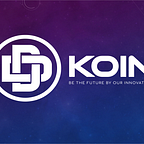Applications of IoT and Blockchain
The combination of IoT and blockchain allows a smart device to function autonomously without the need for a centralized authority, offering various potential benefits. It can also track how devices communicate with each other. While blockchain and the Internet of Things (IoT) are each powerful by themselves, the combination of these technologies can be leveraged by enterprises in an incredible way. Blockchain has the capability for empowering IoT devices with better security and transparency in IoT ecosystems. It presents a scalable and decentralized environment tailored for IoT devices, applications, and platforms. Here are a few applications that can use the combination of IoT and blockchain on their system.
Supply Chain Management
Supply chain management is one of the foremost examples of sectors with promising blockchain IoT projects. The global supply chain network includes various stakeholders, including brokers as well as raw material providers. As a result, it can be responsible for introducing complications in end-to-end visibility into the supply chain. Interestingly, the supply chain could also involve various payments as well as invoices, extending the duration of fulfillment by months. In addition, the participation of multiple stakeholders also results in delays in delivery.
Enterprises are working on the uses of IoT and blockchain together by making IoT-enabled vehicles responsible for tracking shipments. The combination of blockchain and IoT could improve the reliability and traceability of the network. IoT sensors could provide crucial information about the shipment status. Some of the notable IoT sensors include,
1. Temperature sensors
2. Motion sensors
3. Connected devices
4. GPS
5. Vehicle information
The blockchain IoT examples in supply chain management then store the sensor information on the blockchain. After saving data on the blockchain, stakeholders defined in the smart contracts could obtain real-time information access. As a result, stakeholders in the supply chain could prepare adequately for transactions across different shipments and borders.
Smart Homes
The application of blockchain and IoT in smart homes gives another perfect answer for ‘How blockchain can be used in IoT?’ with ease. IoT-enabled devices have provided the ideal foundation for encouraging the concept of smart homes. With the help of IoT blockchain, smart homes could find better ways for managing home security systems remotely from smartphones. Blockchain removes the concerns associated with the conventional centralized approach for exchanging information generated through IoT devices.
One of the notable blockchain IoT examples in the field of smart homes refers to Telstra. The Australian telecommunication giant offers smart home solutions powered by blockchain and biometric security. The smart home solutions offered by Telstra ensure the storage of sensitive user data on the blockchain for better security. The sensitive user data could be related to,
1. Facial recognition
2. Biometrics
3. Voice recognition
After recording data on the blockchain, the immutability trait ensures that only authorized individuals can obtain access to smart homes.
Automotive Sector
The impact of digitalization has resulted in the prolific growth of its competitive demand. Automotive industries have been successfully utilizing IoT-enabled sensors for the development of completely automated vehicles. One of the most prolific uses of blockchain IoT can be identified in the automotive sector for connecting blockchain with industrial IoT solutions. As a result, it can empower multiple users for easier and faster exchange of crucial information.
The automotive sector provides the most favorable platform for encouraging the use cases of blockchain IoT. The combination of blockchain and IoT could result in profound disruptions throughout the automotive sector such as,
1. Smart parking
2. Automated traffic control
3. Automated fuel payments
4. Autonomous cars
One of the notable examples of blockchain IoT use cases in the automotive industry refers to NetObjex. It is actually a smart parking solution that leverages the best of both blockchains as well as IoT. The integration of both technologies is useful for simplifying the process of locating a vacant space in parking lots. In addition, NetObjex can also facilitate the automation of payments through the use of crypto wallets.
NetObjex has entered into a partnership with parking sensor company, PNI, to improve the efficiency of real-time vehicle detection. Collaboration is also one of the driving forces for improving efficiency in finding the availability of parking areas. The IoT sensors in NetObjex carry out calculations of charges for the parking duration. On the other hand, the crypto wallet leverages blockchain for handling billing tasks.
The adoption of IoT-blockchain technology is not yet widespread due to technical concerns and operational challenges. However, IoT-blockchain technology is now at its starting stages where a few major technology companies have begun to seek opportunities in this space. This is because the application of blockchain technology allows enterprises to manage data on edge devices in an IoT system, reducing costs associated with IoT device maintenance and data transfer. It reduces the risks of managing data, because there is no centralized data repository, and the ledger is not vulnerable to cyberattacks. It eliminates the IoT gateway or any other intermediate device for data exchange and reduces the time required to process the data which is very convenient for a business.
References:
